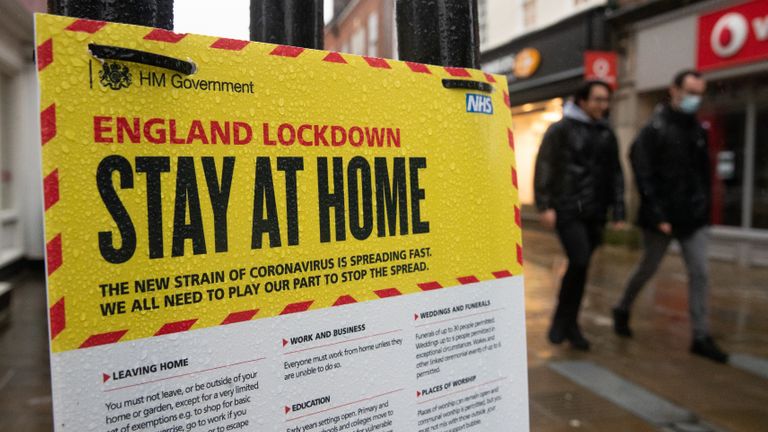Britain should be “ready to redeploy” some form of furlough aid if it faces a virulent COVID-19 wave requiring widespread lockdowns, the International Monetary Fund (IMF) has said.
The IMF said fresh waves of the pandemic and the uncertainty they bring represented the “major risk” to the economic outlook and suggested a limited version of the multi-billion pound job subsidy scheme could be rolled out if these result in firms being forced to close.
The remarks came as the Washington-base body’s regular health-check of the UK economy pointed to a “mild slowdown” in growth in the new year as latest restrictions designed to tackle the spread of the Omicron variant bite.
The IMF said Omicron risked creating further supply chain problems and inflationary pressures – but that “if it or a future outbreak is more virulent this could weigh on confidence and demand”.
It added: “In the event of a virulent COVID-19 wave requiring widespread mandated closures, the authorities should be ready to redeploy a subset of the most successful previous exceptional programmes.”
AdvertisementThe IMF cited “a furlough scheme and targeted support to the most vulnerable households and small businesses” as examples of such programmes.
IMF managing director Kristalina Georgieva told a virtual news conference: “We do not expect the need to return either to the full lockdowns we have seen or the policy support of the kind that this type of lockdown requires.
More from Business“Should there be a need of more restrictive measures especially affecting contact-intensive services, then the policy support will have to be calibrated accordingly.
“What we know is that there has been quite a lot of experience in supporting vulnerable people and businesses. It can be applied then in somewhat different conditions appropriately.”
Ms Georgieva said the UK certainly had the “fiscal space” to afford such support if needed.
“I have no doubt that if that becomes a necessity there would be appropriate action,” she added.
The IMF’s report hailed the rapid vaccination campaign allowing the economy to reopen during the summer, saying: “The recovery has been faster than expected amid strong continued policy support.”
But it also noted supply constraints, price pressures and new COVID-19 variants posing risks to the recovery, while acknowledging the Bank of England’s tricky task of keeping a lid on inflation while ensuring that interest rate hikes do not pour cold water on the recovery.
